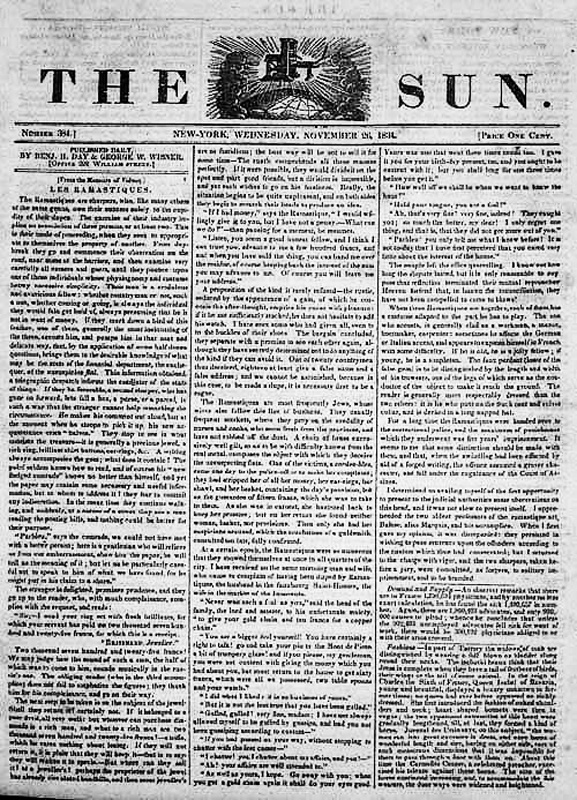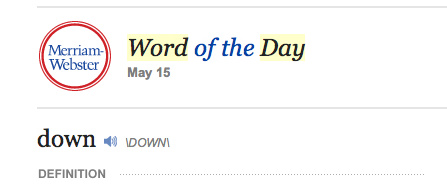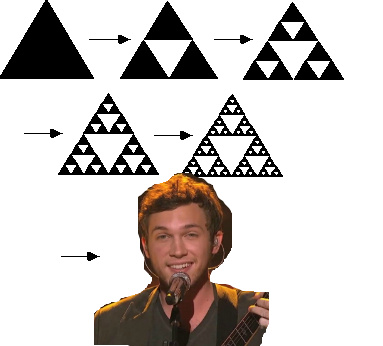Song: “Gone, Gone, Gone” by Phillip Phillips, the number two song on this week’s Adult Contemporary chart.What it teaches us about being a contemporary adult: We're running out of words.“Gone, Gone, Gone” is a pretty good song. Unlike the majority of the adult contemporary chart, you will probably hear “Gone, Gone, Gone” outside of a Petco. The rattling drum bit during the chorus is going to get real annoying when it inevitably starts infiltrating commercials, movie trailers, and NFL broadcast intros, but for now Phillip Phillips’ tune is a nice, rollicking little ballad.It does, however, allude to something awfully serious on the horizon, and anyone who cares about language should be concerned. The second most popular song for contemporary adults in this country has a three-word title consisting of the same, repeating word, and it is sung by a young man whose name is two first names, also repeated.Wake up, folks: We’re running out of words.For years now, modern language has been running along the same parallel tracks as the Dodo bird or Amazonian rainforest. Writing in The Atlantic, Noisey contributor and lexicographical sage Jen Doll explains:“Every few months, the public goes wild at the news that certain words (crowdsourcing, OMG, man cave) have been added to our venerable reference books. Meanwhile, other words get taken out.”This begs repeating: Words—actual words that convey thought—are being replaced by slipshod nonsense like “OMG” (initials, not even a word), “crowdsourcing” (techno-portmanteau nincompoopery), and “man cave” (if words could wear socks with sandals and commit sexual assault).Like the proverbial frog in a pot of boiling water, this change has happened so gradually that it is difficult to notice. Keener eyes will be able to spot the difference between an old newspaper, and one from 2013:
 The changes are subtle, but in the clipping on the right from a modern newspaper, it’s almost as if the words have vanished completely.Is this because it takes no reporting or effort to pull a bikini-clad celebrity’s Instagram photo, sit back, and rake in hundreds of thousands of hits? Or is this the result of our ever-shrinking catalog of language? Newspapers would never take the easy way out, so it must be the latter.Because the situation for language is so dire, there are now services that collect and promote articles that consist of more than a couple hundred words. These pieces are referred to as “longreads” or “longform,” but you may know them better by what they used to be called: stories.It’s encouraging that a few brave men and women are taking up the word-preservation fight, but I fear it may be a losing battle. Like the nomadic, secretive hoards of the literate at the end of Fahrenheit 451, these people have been ostracized and banished to the margins of society, loquacious freaks waiting for inevitable extinction.Hell, even the Word of the Day email has given up:
The changes are subtle, but in the clipping on the right from a modern newspaper, it’s almost as if the words have vanished completely.Is this because it takes no reporting or effort to pull a bikini-clad celebrity’s Instagram photo, sit back, and rake in hundreds of thousands of hits? Or is this the result of our ever-shrinking catalog of language? Newspapers would never take the easy way out, so it must be the latter.Because the situation for language is so dire, there are now services that collect and promote articles that consist of more than a couple hundred words. These pieces are referred to as “longreads” or “longform,” but you may know them better by what they used to be called: stories.It’s encouraging that a few brave men and women are taking up the word-preservation fight, but I fear it may be a losing battle. Like the nomadic, secretive hoards of the literate at the end of Fahrenheit 451, these people have been ostracized and banished to the margins of society, loquacious freaks waiting for inevitable extinction.Hell, even the Word of the Day email has given up: And what about me, you ask? Firstly, I am impressed you were even able to form those words, given the state of modern language. Secondly, this essay is purely the result of gas escaping through the joints of my fingers, which happen to be placed on a keyboard. I am merely a marionette at this point, and my master is bone-farts.“Gone, Gone, Gone” is not an accident, nor is the simplistic title the result of lexicographical dearth; it is a warning. The song itself literally has tens of words, a tome compared to most pop music. Phillips is acting as a prophet here. He knows first-hand of the dried language well we are forced to tap nowadays. Born in 1990, Phillips’ parents had to name him Phillip Phillips, as all other words were taken. What’s worse is that he is a Junior.Clearly Phillips is a smart young man. He won American Idol, and no one wins contests based on things like attractiveness or popularity; intelligence is always paramount. Given his now prominent place as an entertainer in society, he has valiantly chosen to warn us of the upcoming language apocalypse with the hope that he can reverse this terrible fate. And how does a 22-year-old singing contest winner do this? Like any country boy from Leesburg, Georgia worth his salt, he uses fractals.Look at it like this:Philip Phillips
And what about me, you ask? Firstly, I am impressed you were even able to form those words, given the state of modern language. Secondly, this essay is purely the result of gas escaping through the joints of my fingers, which happen to be placed on a keyboard. I am merely a marionette at this point, and my master is bone-farts.“Gone, Gone, Gone” is not an accident, nor is the simplistic title the result of lexicographical dearth; it is a warning. The song itself literally has tens of words, a tome compared to most pop music. Phillips is acting as a prophet here. He knows first-hand of the dried language well we are forced to tap nowadays. Born in 1990, Phillips’ parents had to name him Phillip Phillips, as all other words were taken. What’s worse is that he is a Junior.Clearly Phillips is a smart young man. He won American Idol, and no one wins contests based on things like attractiveness or popularity; intelligence is always paramount. Given his now prominent place as an entertainer in society, he has valiantly chosen to warn us of the upcoming language apocalypse with the hope that he can reverse this terrible fate. And how does a 22-year-old singing contest winner do this? Like any country boy from Leesburg, Georgia worth his salt, he uses fractals.Look at it like this:Philip Phillips
“Gone, Gone, Gone”It’s pretty clear that that’s the lower 2/3rds of a triangle. Specifically, an equilateral triangle, which is the beginning of a Sierpinski set. Named after the Polish mathematician who discovered it, this pattern is infinitely reduced by forming three smaller, equal triangles within it. Take a look at this fair-use licensed GIF as an example: This all must occur within the triangle set itself. It can be increased, but an ur-triangle will always remain. Phillips left us with the aforementioned unfinished triangle as a signal that language, which used to be considered infinite and boundless, is actually near its endpoint. Or, for visual learners:
This all must occur within the triangle set itself. It can be increased, but an ur-triangle will always remain. Phillips left us with the aforementioned unfinished triangle as a signal that language, which used to be considered infinite and boundless, is actually near its endpoint. Or, for visual learners: Phillips knows that if he spoke his warning, the words would bounce off our dumb eardrums like so many mosquitos flying at windshield-height on a busy country road. Ingeniously, he used math, an eternal language of such interpretational durability that we use it in our efforts to communicate with extraterrestrial societies.For that is what we will become should we lose language: Aliens on our own planet. Save us, Phillip Phillips. You’re our only hope.Nick Greene is an American Idol. He's on Twitter — @nickgreene
Phillips knows that if he spoke his warning, the words would bounce off our dumb eardrums like so many mosquitos flying at windshield-height on a busy country road. Ingeniously, he used math, an eternal language of such interpretational durability that we use it in our efforts to communicate with extraterrestrial societies.For that is what we will become should we lose language: Aliens on our own planet. Save us, Phillip Phillips. You’re our only hope.Nick Greene is an American Idol. He's on Twitter — @nickgreene
Advertisement


Advertisement

Advertisement
“Gone, Gone, Gone”It’s pretty clear that that’s the lower 2/3rds of a triangle. Specifically, an equilateral triangle, which is the beginning of a Sierpinski set. Named after the Polish mathematician who discovered it, this pattern is infinitely reduced by forming three smaller, equal triangles within it. Take a look at this fair-use licensed GIF as an example:

